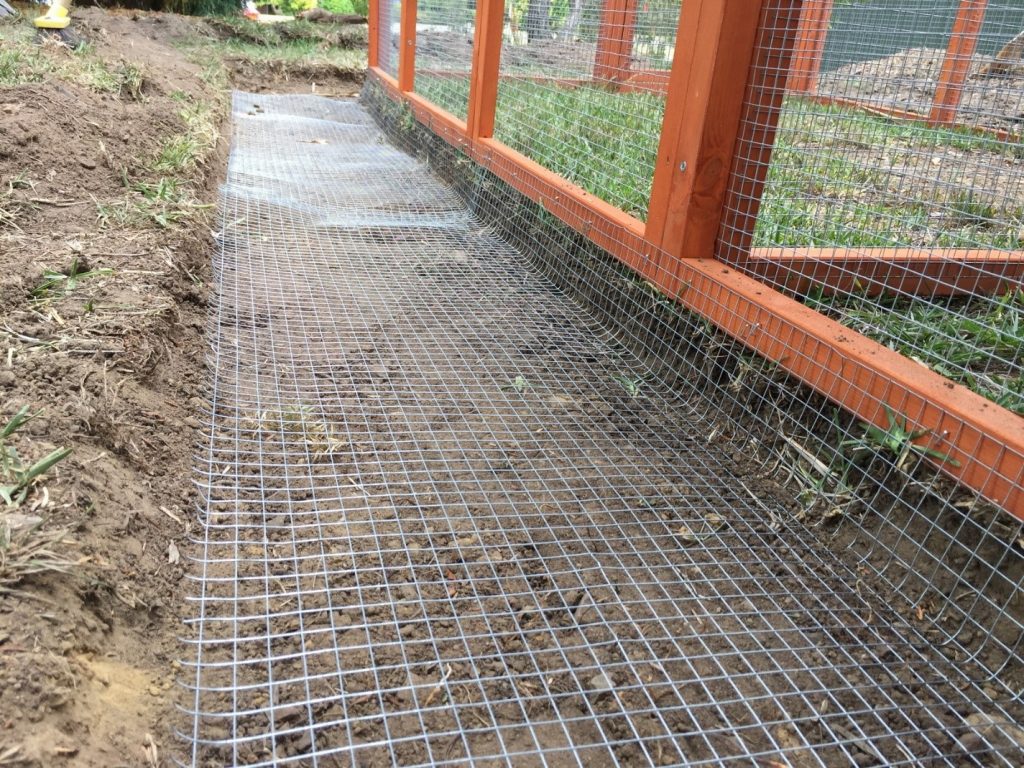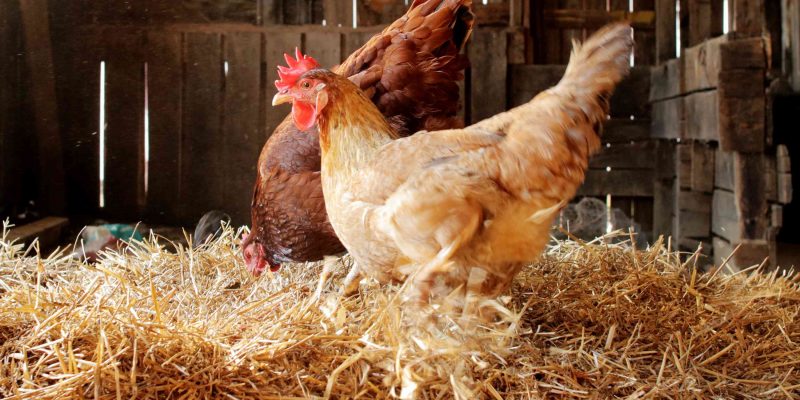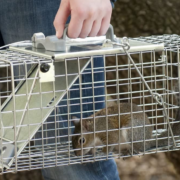A chicken coop is a stiff and more humane alternative to keep predators such as foxes, snakes, rats, raccoons, hawks, and cats at a distance. Besides being safe and comfortable, it protects the flock from extreme weather conditions and winds. However, your coop size needs to suit the size of your birds and yet provide adequate space. Moreover, the coop requires frequent cleaning to remove dirt, debris, and smaller insects that may invite more predators.
Why do chicken coops have two doors? While one entry is for chickens to escape and find insects and seeds, the second door lies for accessing the eggs and cleaning the coop out. Both of these doors play a vital role in predator protection. Furthermore, an elevated stay will protect better from small predators rather than an in-ground one. Cover all the cracks, holes, and crevices to keep predators away. Also, cover the windows with a stiffer mesh so that no enemies can enter.
How To Keep Predators from Digging Under the Chicken Coop?
Use A Hardware Cloth
Never buy a hexagonal welded wire or chicken wire for building a poultry shelter, as it does not provide the necessary security and enclosure. A chicken wire is a fragile mesh that can easily break off by giant predators.
Moreover, smaller predators like mice and rats can easily sneak in through the chicken wire and gobble on the eggs. Hence, to avoid this issue, use a half-inch heavy gauge hardware cloth for your coops. It can be easily used for walls, windows, vents, and doors and can attach with a wood framing with washers, screws, and staples.
- Amagabeli HARDWARE CLOTH: 48x50 hardware cloth 1/4 inch Square Galvanized is used predominantly for...
- MATERIAL & SIZE: 23gauge, heavy duty hot dipped galvanized hardware cloth, providing a double zinc...
- GARDENING MESH: Wire mesh fencing use on the bottom of a raised garden bed and flower beds to allow...
- POULTRY ENCLOSURE: The 1/4" galvanized hardware cloth for a huge enclosure to keep racoons, owls, a...
- CUSTOMER CARE: We are dedicated to provide premium products for you and offer impeccable customer...
Safeguard The Door of The Coop
Do not let the coop stand on the ground itself. Use a wooden floor to prevent predators from digging under the ground below and keep the stay a little elevated to prevent wood-rot. Alternatively, you can even use railroad ties, cinder blocks, or paving stones for the floors. If you have a running enclosure next to your coop, safeguard it using hardware cloth. Elevate the sides and attach the frame to the fabric. Drag in dirt, dust, sand, straw, stone, or practically anything that works as a ground cover to prevent predators from digging under the run.
However, if you have a large run and a ground cover sounds too expensive, you can create a strong mesh using hardware cloth or a welded wire mesh. Though extremely strong, remember to extend it at least for 18 inches from all sides. The cloth alternative proves to be suitable unless you have grass growing around that needs to be mowed short. In such cases, fasten your hardware cloth to the landscape by using staples and allow grass to grow through the mesh.
Bury The Cloth

To prevent predators from digging under the chicken coop, dig a 12″ trench around the stay and bury the hardware cloth inside to create a sturdier base. Alternatively, stretch a cloth apron out from the perimeter of the shed. Though honestly, an apron would be weaker than a trench, it will still provide first-hand security.
Use Motion-Activated Lights
These bulbs trigger the light when motion is detected and shut off when movement stops. Digging predators prefer darkness and run at the sight of light. Hence, one can use motion-activated lights to prevent predators from digging under the chicken coop.
Cover The Bottom with A Strand of Electric Wire
Protect the coop from burrowing animals by passing a single electric wire from the ground so that digging predators will shock their noses if they try to dig under the stay.
Elevate The Coop
Elevate the coop from the ground to make attacks difficult for digging predators. Additionally, raising will protect the wood, too, as rotten spots in the wood are easy entry points for burrowing predators.
Use A Hot Wire
A hot wire around the coop is a great alternative to keep predators from digging under the chicken coop. Use a reel or poly wire with a portable solar charger for this option.
Block Any Access Holes
Ensure that there are no access holes to your shed, as digging animals might take it as a clue and move forward. Remember that a weasel can dig in through a half-inch hole. Hence, close all gaps that might disturb.
Check For Leftovers
Clean up your stay in the evening and remove scrap food to prevent digging animals from getting attracted. Mice lure up on the smell of leftover food and might sneak in under the run to eat. Once inside, they will eat the eggs in no time.
Run A Fence
Run a fence under the ground to keep predators at bay. Remember that chicken wire and poultry netting are not predator-proof. Though expensive, choose a welded wire for this purpose.











Comments